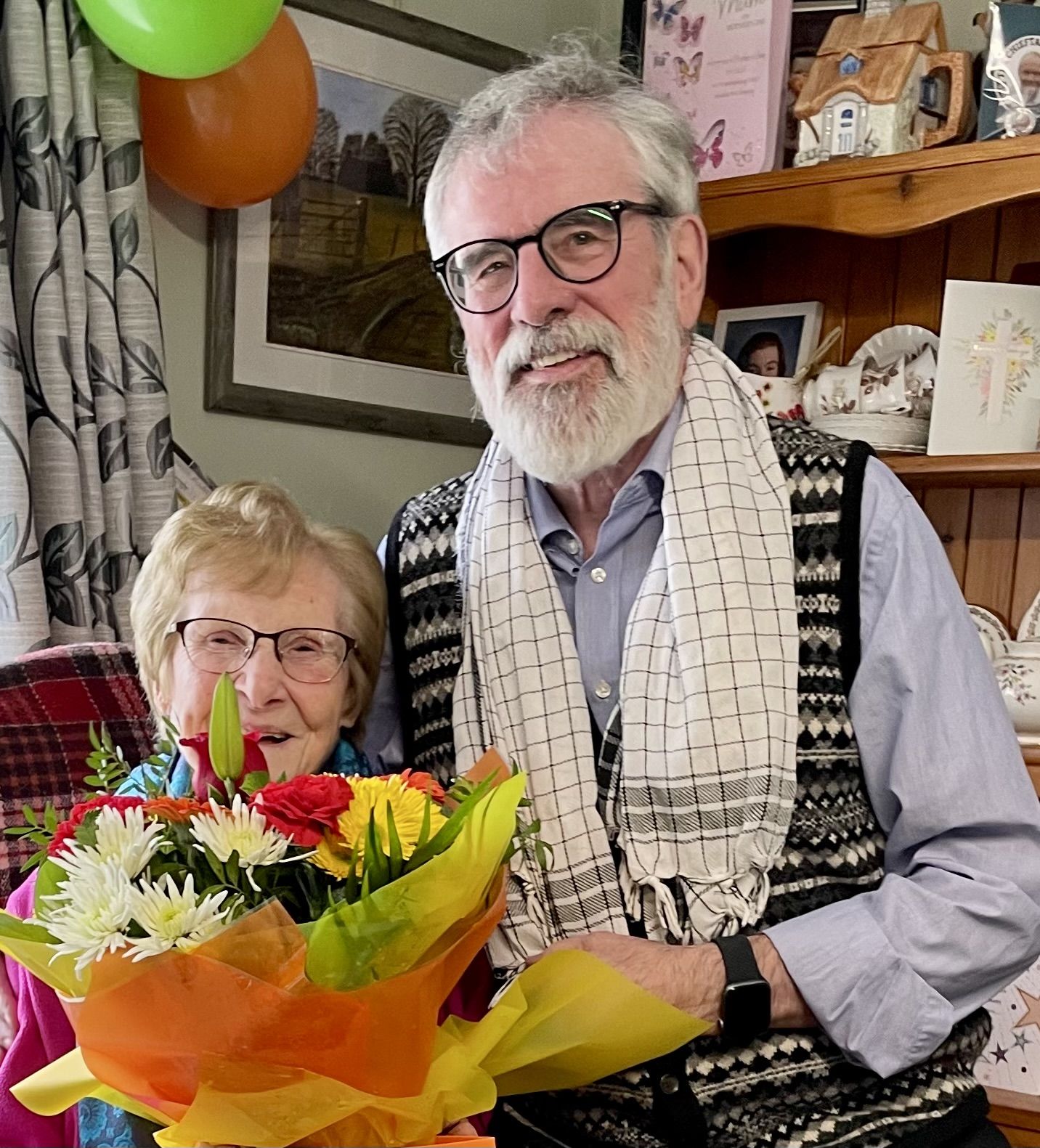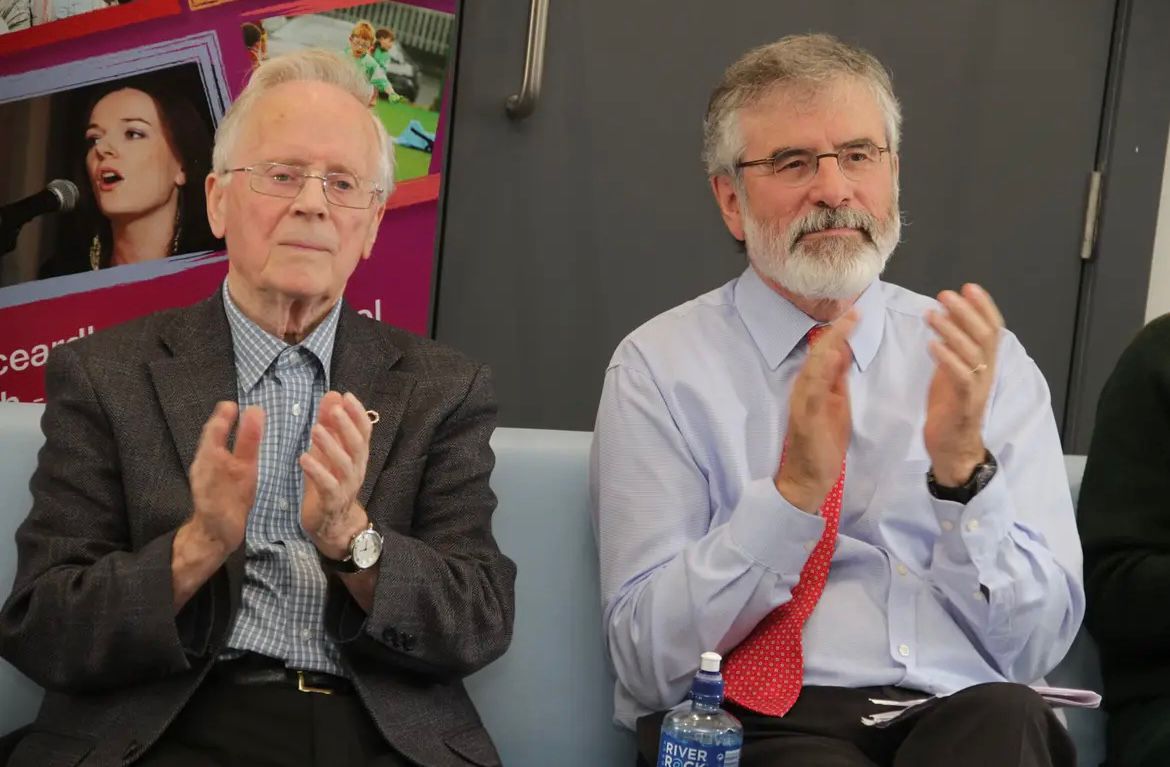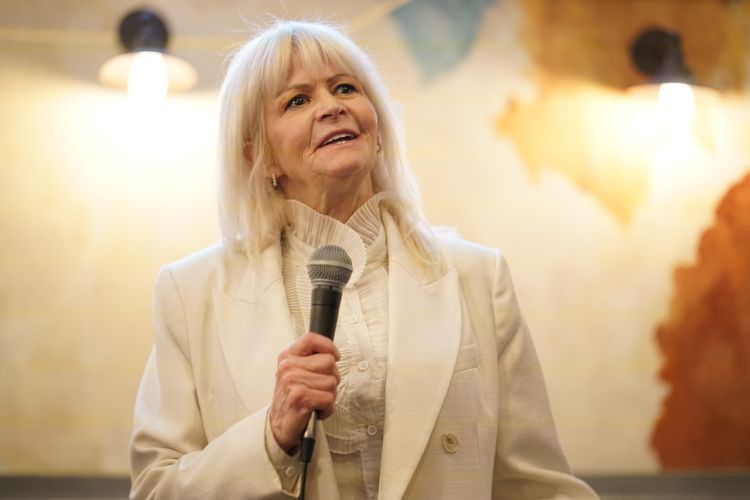A RECENT report - 'Northern Ireland Subvention: Possible Unification Effects' – published by the Institute of International and European Affairs (IIEA) caught the headlines. It contained the startling claim that Irish unity could cost the South up to €20 billion annually. It was grist to the mill of those who oppose unity.
Before the day of the report being published was out, contrary and critical opinions of the report began to emerge, with other senior economists criticising it for its failure to acknowledge that a united Ireland will not have responsibility for much of the subvention and that the amounts involved are significantly smaller.
Whatever one’s view of the merits of the IIEA report, it succeeded in creating a debate around the shape of a future economy for the island of Ireland and that is a good thing. It highlighted the absence of any planning by the Irish government and reinforced the call for a Citizens’ Assembly to discuss future constitutional arrangements.
In a further contribution to the conversation around the future shape of a united Ireland, Sinn Féin last week published its latest policy document aimed at tackling division and segregation in society – ‘A New Ireland for All: Ending Sectarian Segregation’. Its objective is a shared society in which all citizens are cherished, respected and protected in a new national constitutional democracy. Among the contributors to the launch was Denzil McDaniel, former editor of the Impartial Reporter in Fermanagh and political commentator.
He told the audience in St Comgall’s/Eileen Howell Ionad: “There is a momentum building in the discourse about a new Ireland, about the economy, what a health service or the education system would look like. These are all important conversations, and I’m not ignoring them; nor indeed the new Taoiseach Simon Harris’s disappointing start in continuing the southern government’s failure to embrace the conversation.
"But specific to this policy launch is ending sectarianism and segregation and that is vital in building a better society. Small conversations about the kind of shared society we want to live in and pass on to our children and grandchildren are important. Conversations about breaking down barriers, building trust, building relationships are crucial. I was talking to a Protestant friend recently about what reconciliation really means and he later sent me this definition.
"At its simplest, it means finding a way to live alongside former enemies, not necessarily to love them, or forgive them, or forget the past in any way, but to coexist with them, to develop the degree of cooperation necessary to share our society with them, so that we all have better lives together than we have had separately.”
The new policy document is available at: https://vote.sinnfein.ie/need-for-step-change-to-tackle-sectarianism-and-build-better-future-oneill/
Celebrating Maisie's 100 years
LAST week I travelled to South Armagh with a large bunch of flowers to join the family of Maisie Moley in celebrating her 100th birthday. Maisie is a fresh, sprightly centenarian – the matriarch of the large Moley family. She and they were in great form as we pushed back the furniture for the obligatory photographs and all joined in the singing of Lá Breithe Shona Duit.
CENTENARIAN: Maisie Moley with a birthday bouquet from Gerry Adams
The last time I was at the Moley household was in March 1988 when Martin McGuinness and I carried the remains of her son, IRA Volunteer Brendan Moley, from the family home to his funeral with his comrade Volunteer Brendan Burns. Both had been killed in an explosion. I remembered all of that as I drove along the narrow country roads and the South Armagh hilltops on either side of us.
Well done, Maisie. Happy 100th birthday to you.
Keep supporting the Palestinian people
AS the world holds its breath waiting on the outcome of the current face-off between Iran and Israel and the potential for a regional war, the slaughter of innocents continues in the Gaza Strip and on the West Bank.
RESPONSE: Iran launched a barrage of missiles at Israel after the attack on its consulate in Damascus
Two weeks ago Israel destroyed part of the Iranian consulate in the Syrian capital of Damascus. Senior Iranian officials were killed. Last weekend, after giving a 72-hour warning of its intention to respond, several hundred drones and missiles were launched by Iran against military targets in Israel. Iran has said that it has now concluded its response. But has Israel?
In the meantime, the Israeli genocide against the Palestinian people continues. Pogroms against Palestinian villages in the West Bank are increasing and hunger has already claimed Palestinian lives, mainly children. All of this increases the need for us to keep supporting the Palestinian people.
Seán Mackel: A man who got things done
Seán Mackel died peacefully in his sleep on April 6. He was ninety one years old. Seán was the beloved husband of the late Phyllis and loving father to Ciarán, Seán, Pádraig and Áine. He was father-in-law of Cathy, Susanne, Kate and the late Robert. He was also a much loved grandfather and great-grandfather. His family and friends, including Jim Gibney and me, gathered at St Patrick’s Church, Saul, County Down, for his funeral on April 9.
We are all the lesser for his passing. Especially his family and his generation of activists. Go ndéana Dia trócaire ar a nanam uasal. Seán's son, Ciarán, put it well in his eulogy when he said: “Seán’s life was blessed with love and sacrifice. And, as his children and grandchildren, we have been blessed with joy and love. As a community, we have gained from his vision and resoluteness and been emboldened by his courage and strong character in the face of threat, persecution, and refusal. We are broken-hearted at his loss, full of sorrow and grief, but united in our celebration of his life, and humbled and enriched by his legacy of practical contributions to our community.”
MAN OF ACTION: Seán Mackel and Gerry Adams – the late Irish language activist was behind a huge number of practical projects
That phrase, "practical contributions to our community", sums up Seán’s activism for me. He was also a progressive Catholic, a doer, a gentleman, a Christian and an Irish patriot.
Seán was born in 1933 and raised in Servia Street, Falls Road, and in Brittons Parade in the Whiterock. Seán’s mother, Josephine, died when he was sixteen, with the youngest of the nine siblings only four years old. Geordie, their father, raised his children on his own, supported by Seán and older sisters Maureen and Nora.
Seán was educated in St Kevin’s Primary School, and then in St Malachy’s. He went on to become an architect. Seán and Phyllis were married in 1954 and they lived for a short period in Ligoniel and then Andersonstown, where they raised their four children.
Seán Mac Goill is one of that band of visionaries and activists which gave us the new Bombay Street after the original Bombay Street was destroyed in the 1969 pogroms, the urban Gaeltacht on Bóthar Seoighe, Ballymurphy Enterprises, the Andersonstown News, the Whiterock Industrial Estate, Garáiste an Phobail, the Rock Knitwear Group and many other projects going back to the mid-1960s. Seán and his peers and their pioneering families were also immersed in the Irish language in West Belfast and the wider cultural revolution across the city.
Have no doubts about their achievements. This is a hugely successful group of progressive Irish men and women. They persisted. And they prevailed. And we all benefited. They created the structures for education, employment, progress and self-help despite fierce opposition from an actively hostile unionist and British regime. None of those involved benefited personally from these initatives.
When the assets of the Industrial Estate – which was taken over by the British Army in 1979 – were liquidised the proceeds went to Irish language projects, including the new Naíscoil an tSléibhe Dhuibh.
Sean Mackel was a very practical activist. He told me once that we needed to replace names of buildings and project with Irish names. "Don't use the English translation. Use only the Irish and that's what people will use also." He cited An Cumann Chluain Ard and the old Ard Scoil as examples of this. He said Sinn Féin should have done that with Connolly House, and of course he’s right.
An Chultúrlann is a good example of Sean’s philosophy. So is Féile an Phobail.
An even older example is the name Sinn Féin. Gael Ionad MhicGioll, in Ballymurphy, is named after Seán. It is fitting that plans to expand this facility are well advanced at this time.
Seán was a champion of self-help and co-operative enterprises. He got things done. He and his compatriots made things happen. Déan é, na h-abair é – Don’t just say it, do it, was their mantra.
Phyllis and Seán moved to Downpatrick in 1988. His work on Irish language development continued and he worked for many years for Iontaobhas na Gaelscolaíochta, supporting new and emerging Gaelscoileanna. Seán remains inspirational to language and community activists.
Gael go smior, is flaithiúil. Ní bheidh a leithid ann arís.
Go ndéana Dia trócaire air, is suamhneas síoraí ar a anam dílís.
If you want to learn more about these mighty men an women, and especially about Seán, I am recommending the book Togáil Croí by Seán Mac Goill edited by Seán Mistéil. It's availible from An Ceathrú Póílí and An Chulturlann.









